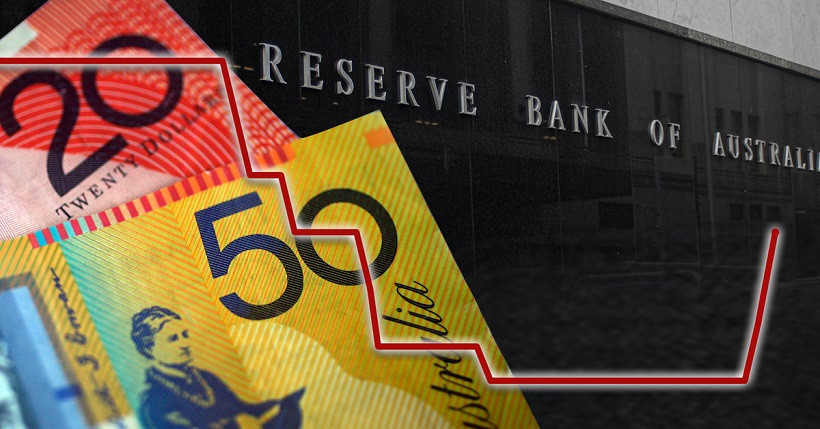Following the results of the June meeting, the Reserve Bank of Australia implemented the most hawkish and least expected scenario, raising the interest rate by 50 basis points at once. Whereas the baseline scenario assumed a 25-point increase in OCR. Reacting to this decision, the AUD/USD pair impulsively jumped to the middle of the 72nd figure, however, at the start of the European trading session on Tuesday, it was forced to turn 180 degrees.
The Aussie was unable to build on its success due to the sharp strengthening of the US currency throughout the market, against the background of rising oil prices. The US dollar index has updated a two-week high, returning to the area of the 102nd figure. Dollar pairs have changed their configuration accordingly, reflecting the dominance of the greenback. For example, the USD/JPY pair has updated a 20-year price high today.
Aussie also succumbed to the pressure of dollar bulls. The AUD/USD pair turned around and dropped by 100 points, to the level of 0.7160. Against the background of such hawkish results of the RBA meeting, such price dynamics look abnormal, but here the Australian dollar has to reckon with the pressure of the greenback. The question is, how long will the AUD/USD bears be able to control the situation, given the fact that the pair has been within the upward trend for almost a month on hawkish expectations regarding the further actions of the RBA?

Now that the Australian regulator has de facto strengthened its hawkish attitude, short positions on the pair look a priori risky, even despite the assertiveness of the US currency. Moreover, the growth of the greenback is, in my opinion, situational and unreliable. Traders reacted to the renewed growth of the oil market, which will inevitably "pull" American inflation. According to a number of experts, if inflation in the United States shows active growth again (despite the fact that the first signs of a slowdown in CPI and PCE growth appeared in May), the Federal Reserve may raise the interest rate at a more aggressive pace, abandoning its intentions to make an autumn pause in the process of tightening monetary policy.
But let's return to the results of today's RBA meeting. The regulator stated the fact that inflation is "at too high a level." At the same time, members of the central bank are confident that the Australian economy "will be resistant to further rate increases." It is noteworthy that the regulator actually announced further steps to tighten monetary policy, but at the same time did not talk about the pace and scale of this tightening. The accompanying statement states that the size and timing of the future increase "will be determined by incoming data and an assessment of the prospects for inflation and the labor market."
In other words, the regulator has once again "tied" the prospects of monetary policy to the main macroeconomic indicators in the field of inflation and the labor market. If in the second quarter the consumer price index in Australia comes out in the "green zone" again, exceeding the bold forecasts of experts, it will be possible to count on the aggressive pace of the RBA rate hike.
It should be noted that the RBA has been making a more hawkish decision for the second time in a row, contrary to the forecasts of most analysts. At the previous meeting, the RBA raised the rate by 25 points, while the market was focused on a 15-point increase. On the eve of the June meeting, the market was ready for a 25-point increase, while the central bank de facto increased the rate by 50 points. And judging by indirect signs, inflation in the second quarter will surprise again with its record growth. For example, electricity prices at the moment are already six times higher than at the beginning of last year: the average price per megawatt-hour in the eastern states reaches $600.
The Australian government is trying to find a solution to the worsening energy crisis in the country, but so far the crisis is only getting worse. In particular, the Australian Energy Regulator recently decided to raise marginal prices, which are, in fact, the maximum amount that retailers can charge households and businesses "by default."
At the same time, the accompanying statement of the Australian regulator states that higher electricity and gas prices mean that in the near future inflation "is likely to be higher than expected a month ago." Based on this, it can be concluded that the regulator will resort to a more aggressive rate of interest rate hikes.
Thus, the situation for the AUD/USD pair looks ambiguous. On the one hand, Aussie succumbed to pressure from the greenback, which today strengthened its position throughout the market. On the other hand, the downward dynamics is intermittent and uncertain: after an impulse decline, the price actually froze in one place, trading in a narrow price range. The bears were unable to build on their initial success, and this is quite a wake-up call for the sellers of the pair.
Therefore, in my opinion, longs are still a priority, but it is necessary to monitor the dynamics of the US dollar index. As soon as it slows down its growth (or turns downside once again), buyers of AUD/USD are likely to seize the initiative for the pair. Therefore, you can open long positions either from the current levels (this is a riskier option) or after the US currency "runs out of steam" and will not be able to develop an offensive throughout the market. The nearest upward target is 0.7280 (the lower limit of the Kumo cloud on the daily chart coincides with the upper line of the Bollinger Bands indicator). If we talk about a longer-term period, then the target of 0.7350 is the upper limit of the Kumo cloud on the same timeframe.





















